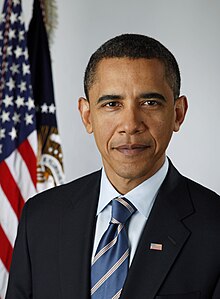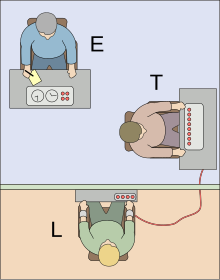Professionalism/Mark Lund and the FAA
Introduction[edit | edit source]

The Federal Aviation Administration (FAA) is a regulatory agency for the air transportation industry. Created in 1958 by the Federal Aviation Act, the agency’s mission statement is “to provide the safest, most efficient aerospace system in the world”[1]. In March 2010, The FAA System Operation Management published the underlying values for the FAA [2]. These values are key to efficient performance within their mission statement. These criteria for a “safety oriented culture” exist recently, but it is assumed that the fundamental ideas were previously considered operation standards prior to publication.
The FAA Systems Operational Management defines their culture as having five aspects that allows the most efficient performance toward the mission statement. The five aspects are willful reporting of deficiencies, retaliation free dialog within the organization, information transferred across all levels of operation, continual learning, and flexibility for solutions [3]. The core values were pushed aside by management following 9/11. Retaliation free dialog ceased after management redefined what flexible should entail. This shift in core values led to inspectors being forced to work against their ethics and ability to report. The consequence for not adapting to the new approach was negative.
Following 9-11, the aviation industry experienced economic setbacks. Offering flexibility, the FAA encouraged inspectors/managers to give a list of corrections and not levy fines[4]. As a result, the airline industry replaced public welfare as the primary client. Barring the possibility of corruption and negligence within management, a change in core value interpretation was responsible. Whistleblowing within the chain of command, let alone speaking to an outside governmental agency, became the most heinous of actions.
Background[edit | edit source]


The post 9/11 airline budget cuts tested the moral fibers of the airline companies in the United States. In fact, these financial constraints revealed the true colors of the 6 largest U.S. airlines. Following 9/11, the number of Enforcement Investigative Reports for the “big 6” dropped by 62% despite the number of commercial passengers increasing by 45%[5].The airline priority for sound planes was compromised as funds for passenger flight security increased. Financial constraints led Northwest Airlines mechanics to go on strike on August 20th, 2005[6]. Northwest Airlines did not let the strike restrict their business; within one day the airline had replaced the mechanics with substitute mechanics. The skills of these replacements were not up to par. The airline was conscious of their inadequacy; many mechanics had never worked on planes besides simulator training[7].
The unskilled mechanics and inadequate safety procedures eventually led Mark Lund, a Minnesota based Federal Aviation Administration (FAA) Inspector, to whistleblow[8]. After the replacement mechanics started, Lund noted several avoidable errors due to insufficient mechanic training. The first error was a McDonnell Douglas DC-10 with a broken lavatory duct, allowing waste products to spill onto critical equipment on a flight from Amsterdam to Minneapolis, where Northwest Airlines planned to let the plane continue onto Honolulu before it was fixed[9]. Lund also noted that a maintenance mechanic could not find a switch to test the engine on an airbus a320[10], a mechanic was unsure of how to close a cabin door on a Boeing 757[11], a mechanic failed to lock the brakes on a Boeing 757 before checking the break wear pins[12], and a Boeing 757 blew out its main tires when it landed in Detroit the first morning after replacement mechanics started work[13].
There were 121 other problems in the first week following the strike[14]. Immediately after Lund began to notice these mistakes and the inadequacies of the replacement mechanics he wrote three recommendations to his FAA supervisors in Washington. He claimed that a situation existed “that jeopardized lives”[15] and made several suggestions to be carried out until mechanics and inspectors could do their jobs “without error”. In his memo he recommended cutting back flight schedules, upgrading the mechanic training program, and increasing FAA surveillance[16]. The FAA and Northwest Airlines had a cozy relationship, which led to immediate repercussions for Lund. The FAA took away his badge and gave him a desk job[17]. Lund’s claims were verified in a 2010 investigation, which confirmed that Northwest Airlines violated more than 1,000 FAA directives [18].

Lund, still concerned about the dangerous situation, fought back. He hand delivered his suggestions to Mark Dayton, the [https://en.wikipedia.org/wiki/Senator Senator of Minnesota (Northwest’s home state). Dayton was appalled by the behavior of the airline and the FAA. Dayton contacted the Inspector General at the Department of Transportation (DOT); the organization that oversees the FAA[19]. Dayton assisted in getting Lund his original job back within six weeks. Once he was given his badge back, Lund immediately inspected the Boeing 757 whose breaks went out upon landing. He concluded that “probable cause for the tire failure was a brake failure caused by a brake control cable that a replacement mechanic inadvertently jammed after routine maintenance to an unrelated system”[20]. Lund immediately wrote a letter notifying his FAA supervisors again. In his letter he cited this incident as an example and stated that Northwest “is not a school to train mechanics while it operates at a safety risk to the public”[21].
The Aftermath[edit | edit source]


The overly cozy relationship between the FAA and the airline industry caused the Department of Transportation Inspector General to demand immediate changes. In 2007, the Inspector General released a report mandating that the FAA must improve procedures for reacting to and resolving safety complaints[22].
In 2008, the FAA headquarters initiated a national review of major airlines’ safety order compliance. Fourteen instances were found in a four-month period in which Northwest Airlines did not abide by safety orders[23]. Northwest was exposed to have one of the highest noncompliance ratings of all airlines reviewed.
Since unsafe procedures were still continuing at the FAA, Mark Lund wrote a letter to both the United States Congress and President Barack Obama in 2010. He claimed that the FAA’s corporate culture resulted in inspectors willing to look away from safety violations, the FAA not addressing inspector safety concerns, and corporation leaders not ensuring FAA National Procedures [24]. He requested for further procedure enforcement to reduce public safety risk.
Throughout his career, Lund had support from his union PASS, which is composed of 11,000 Professional Aviation Safety Specialists from the FAA and Department of Defense[25]. Members of PASS and airline pilots encouraged Lund to share his stories and thanked him for his efforts[26]. For courage in protecting the public, the Association of Certified Fraud Examiners awarded Lund the 2008 Cliff Robertson Sentinel Award. The award is to honor whistleblowers “for choosing truth over self”[27].
Facing Ethical Dilemmas[edit | edit source]
This case incorporates four ethical dilemmas including conflict of interest, fear of reprisal, bystander effect, and obedience to authority. Together these dilemmas allowed the FAA to develop tunnel vision with regards to their mission statement. The repercussions were ignored to benefit the airline industry financially. Similar to the famous Enron scandal, the FAA had an internal ethical struggle regarding their primary client.
This struggle was not limited to the desires of the airlines versus the operational constraints within the FAA mission statement, but also safety versus cost. The FAA was putting public safety at risk by trying to aid the airline industry's cost cutting. Ignoring a safety issue means that the airline saves spending additional money on labor and materials. The organization wide conflict of interest trickled down to the inspectors. Inspectors were required to operate against their work ethics and the FAA mission statement. Employees had to choose between their family and job or protecting the public safety. Many chose to follow the airlines' desires because of fear of reprisal. For Lund the decision was hard, but the "public is and always has been [his] customer"[28].
As demonstrated by the Milligram experiment, 65% will act obedient when a superior is giving them directions despite potential repercussions. Obedience to superiors and fear of reprisal increased safety risk and hindered inspectors from doing their jobs. Blind obedience to superiors based in either fear or their position is an ethical concern that can cloud judgment with negative consequences. The FAA created a climate of fear that would violate the Operational Systems core values for providing for the public good. Therefore, it required courage and competence for Lund to disobey his superiors by protecting the public good.

Lund was aware of the bystander effect that was occurring among the FAA inspectors. He stated that many employees he knew in PASS were not speaking up about similar problems they had. The way the FAA was handling recommendations was discouraging others to bring safety issues to the FAA, but Lund believed he was still responsible and accountable for not acting. In an interview he stated that “people can die when FAA management does not intervene to ensure public safety”[29].
The FAA and Northwest airlines had tunnel vision with the light at the end of the pathway being money. Their actions could have led to injury, plane crashes, or events that would tarnish the company reputations irreparably. Mark Lund and similarly courageous inspectors are the reason these events did not occur.
Ethical professionals must consider the consequences of their actions and persevere to affect positive change. Regarding enacting positive change when faced with negative consequences, Mark Lund advises professional behavior with his actions and personal ethics statement.
“Pursue all elevations of your concerns or findings in a professional manner. Try to work within the established chain of command. Establish yourself as working within the system and give opportunity for those to respond. If they meet your expectations, you have done an honorable job. If you must go outside your organization, then you must ensure that you will be working at a level that has the ability to affect your outcome”[30].
References[edit | edit source]
- ↑ https://www.faa.gov/about/mission/
- ↑ https://www.faa.gov/air_traffic/publications/bulletins/media/atb_mar_10.pdf
- ↑ https://www.faa.gov/air_traffic/publications/bulletins/media/atb_mar_10.pdf
- ↑ http://www.businessweek.com/magazine/content/08_06/b4070000689813.htm
- ↑ 1http://www.eturbonews.com/1108/airline-safety-whistleblowers-tale
- ↑ http://www.businessweek.com/magazine/content/08_06/b4070000689813.htm
- ↑ http://www.fraud-magazine.com/article.aspx?id=423
- ↑ http://www.eturbonews.com/1108/airline-safety-whistleblowers-tale
- ↑ http://www.businessweek.com/magazine/content/08_06/b4070000689813.htm
- ↑ http://news.minnesota.publicradio.org/features/2005/09/08_zdechlikm_faafolo/
- ↑ http://www.fraud-magazine.com/article.aspx?id=423
- ↑ http://news.minnesota.publicradio.org/features/2005/09/08_zdechlikm_faafolo/
- ↑ http://www.eturbonews.com/1108/airline-safety-whistleblowers-tale
- ↑ http://www.eturbonews.com/1108/airline-safety-whistleblowers-tale
- ↑ http://news.minnesota.publicradio.org/features/2005/09/08_zdechlikm_faafolo/
- ↑ http://www.fraud-magazine.com/article.aspx?id=423
- ↑ 1http://www.eturbonews.com/1108/airline-safety-whistleblowers-tale
- ↑ http://articles.cnn.com/2010-07-22/us/northwest.airlines.faa_1_faa-inspectors-safety-directives-faa-airworthiness-directives?_s=PM:US
- ↑ http://www.fraud-magazine.com/article.aspx?id=423
- ↑ http://www.fraud-magazine.com/article.aspx?id=423
- ↑ http://www.eturbonews.com/1108/airline-safety-whistleblowers-tale
- ↑ http://www.businessweek.com/magazine/content/08_06/b4070000689813.htm
- ↑ http://www.guardian.co.uk/world/feedarticle/9186508
- ↑ http://www.osc.gov/FY2010/Scanned/10-38%20DI-08-2971/10-38%20DI-08-2971%20Comments%20Part%201%20of%205.pdf
- ↑ http://www.passnational.org/
- ↑ http://www.aviationpros.com/press_release/10403929/faa-inspector-receives-award-for-his-efforts-to-elevate-safety-concerns-at-northwest-airlines
- ↑ http://www.fraudconference.com/23rd-Awards.aspx
- ↑ http://www.fraud-magazine.com/article.aspx?id=423
- ↑ http://www.fraud-magazine.com/article.aspx?id=423
- ↑ http://www.fraud-magazine.com/article.aspx?id=423